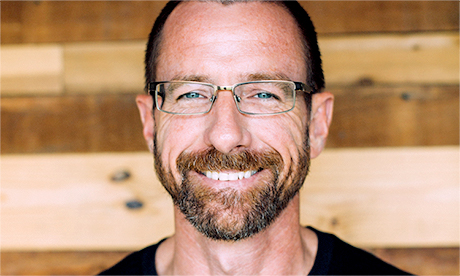Let’s start by telling the truth: we love a tiny fragment of the world’s population.
- I didn’t lose a wink of sleep over the Syrian women and children who died because of chemical weapons.
- I don’t feel a twinge of guilt when I eat my dinner and think of hungry, homeless families sleeping under interstate bridges.
- Over 50,500 people worldwide died last night, but I didn’t shed a single tear over them while I had my morning cup of coffee.
And, unless you’re some kind of super-compassionate, super-merciful, lover of all humanity, you didn’t either.
Do we care? Yes.
Are we concerned? Probably.
Do we want things to change? I would hope so.
But do we love these people? No, not really.
Notice: I didn’t say, “Should we love these people?”
Of course we should.
Love in an imperfect world
In a perfect world, we’d love every man, woman, and child. With our whole heart. Unreservedly. But we don’t. Not because we are hardhearted monsters, but because we are regular people. And regular people love a minuscule amount of the world’s population.
Think of love this way: love is welcoming others into our little world.
Our little world begins with our own bodies. Only one person is welcome there: our spouse.
But our little world goes beyond our body.
It includes those who are welcome in our home and at our table, people like family and friends.
But our little world is still bigger: it includes those with whom we work, play, and worship.
The closer someone is to the little world of me, the more I love them. The farther away they are, the less I love them.
Our love is as much geographical as it is anything.
If your next-door neighbor is murdered tonight, you’ll exclaim, “O dear God, poor Joe! How horrible.”
But when the Mexican mafia guns down ten people on the streets of Juarez tonight, you’ll just pop some popcorn and continue watching Netflix.
You don’t love those people because they are far away, not in your world.
They are outside your love zone.
I say all this really for one reason and one reason only: to try and get through our thick heads just how different our love is from the love of God.
The women and children who died in Syria: God knit together every one of them in the womb, breathed life into them, laughed as they played and smiled as they grew.
He not only cared when they died horrific deaths; he loved them.
From the untouchable living on the streets of India to the millionaire in Manhattan; from the farmer in Germany to the escort in Vegas; from the missionary in Argentina to the bartender in Ireland—they are all in the love zone of the Lord.
Every. Single. One.
Every single one was on the mind of Jesus when he bled and died for them.
Every single one is the object of God’s daily mercy and compassion.
Every single one is known, loved, and cherished by the Creator.
He know the number of hairs on their heads.
He knows the number of cells in their bodies.
He knows their dreams, their fears, their shame.
They are all in his big world of love. He will welcome every one into his home and at his table. He desires all to become part of the body of his Son.
Now that’s true love.
And we shouldn’t be surprised because, as John says, God is love.
Love isn’t a trait of the divine personality but his very essence. He loves specifically, wholeheartedly, unreservedly.
We try—and fail—to imitate that love. Some of us do better than others. So be it.
But even as we fail, and try again, and seek to enlarge our own little worlds of love, we rest in the immense love of the Father. And we await that time when, in the new heavens and new earth, we will look every man, woman, and child in the eye, and truly, without reservation, echo the words of our Father as we say, “Dear brother, dear sister, I love you.”
Dear God, enlarge our hearts. Expand our love. And fill us with your love, for without it, we all are lost.
- Chad Bird is an author and speaker devoted to honest Christianity that addresses the raw realities of life.
- First published at www.chadbird.com Republished with permission.
- Image: www.chadbird.com
